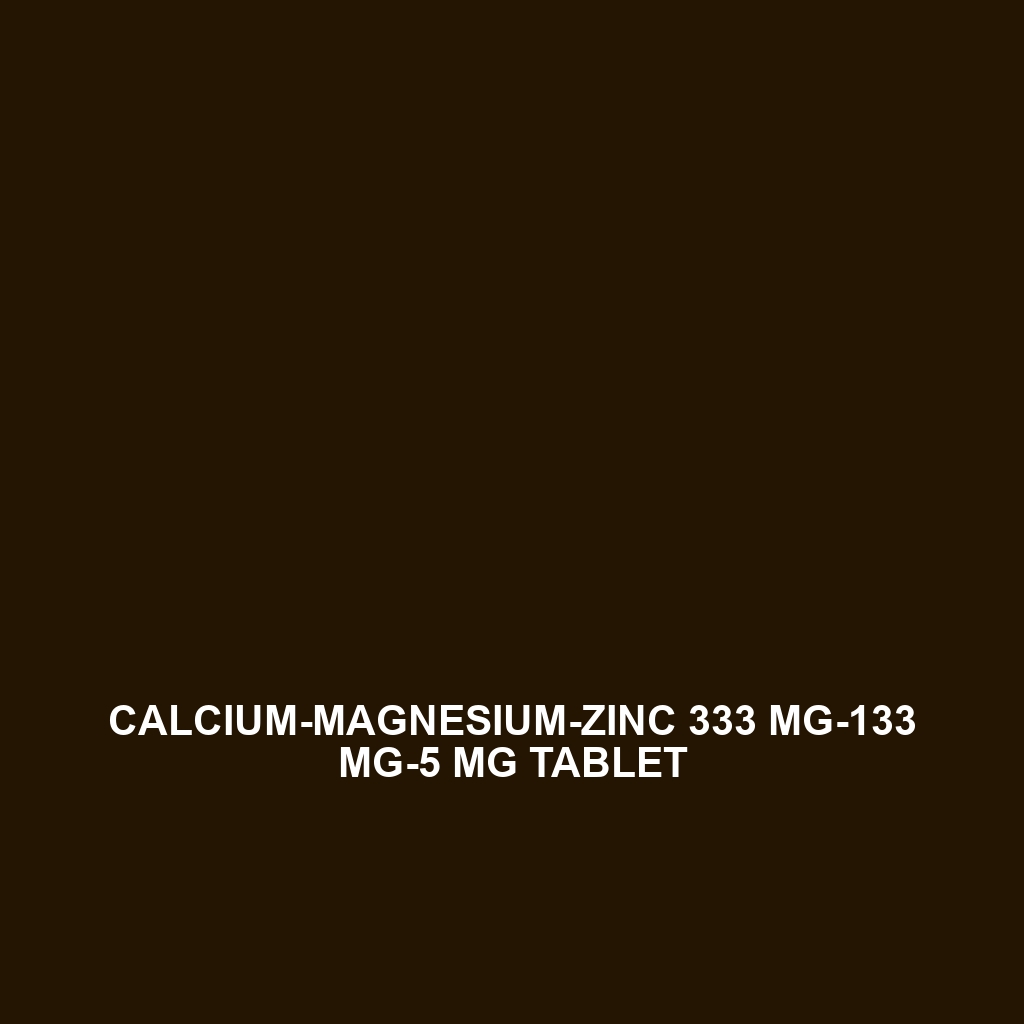Calcium-Magnesium:
Definition and Description of Calcium-Magnesium:
Calcium-Magnesium refers to the essential minerals calcium (Ca) and magnesium (Mg) which are crucial for various bodily functions. Both minerals are integral to bone health, muscle contraction, nerve function, and energy production. In medical terms, calcium is vital for maintaining structure in bones and teeth, while magnesium aids in regulating calcium levels and activating vitamin D. A balanced ratio of both minerals is necessary for optimal health, with deficiencies or imbalances potentially leading to health issues.
Causes of Calcium-Magnesium:
Several factors can contribute to calcium and magnesium imbalances. Nutritional deficiencies often arise from diets lacking in dairy, leafy greens, nuts, and whole grains. Certain medical conditions, such as gastrointestinal disorders, kidney disease, and hormonal imbalances, can also affect mineral absorption and metabolism. Additionally, external factors like chronic stress and high levels of physical activity can deplete the body’s reserves of these essential minerals. Genetic predispositions to mineral absorption disorders might also play a role in some individuals.
Associated Symptoms of Calcium-Magnesium:
Symptoms associated with calcium and magnesium deficiency can vary but often include muscle cramps, fatigue, numbness, and tingling. Other signs may encompass irregular heartbeat, anxiety, depression, and brittle bones (osteoporosis). In some cases, individuals may experience digestive issues such as constipation or nausea. Recognizing these symptoms is vital for timely intervention.
Diagnosis of Calcium-Magnesium:
Diagnosis of calcium and magnesium imbalances typically involves a thorough assessment by healthcare professionals, including a review of medical history and dietary habits. Blood tests are commonly employed to measure serum levels of calcium and magnesium. In some cases, additional tests, like bone density scans, may be performed if osteoporosis or related conditions are suspected.
Risk Factors for Calcium-Magnesium:
Individuals at higher risk for calcium and magnesium deficiencies include older adults, postmenopausal women, individuals with chronic illnesses, and those on certain medications that affect mineral absorption. Lifestyle factors such as sedentary behavior, excessive alcohol consumption, and a diet low in essential nutrients can also contribute to increased risk.
Complications of Calcium-Magnesium:
If left untreated, an imbalance of calcium and magnesium can lead to serious complications. These may include osteoporosis, particularly in postmenopausal women, cardiovascular problems due to abnormal heart rhythms, and increased susceptibility to fractures. Long-term deficiencies can also result in chronic fatigue and muscle weakness, significantly impacting quality of life.
Treatment Options for Calcium-Magnesium:
Management of calcium and magnesium deficiencies typically includes dietary adjustments to include foods rich in these minerals, such as dairy products, nuts, seeds, and green leafy vegetables. Healthcare providers may also recommend supplements if dietary changes are insufficient. Additionally, magnesium-rich foods may be encouraged to maintain the balance of calcium levels in the body.
When to See a Doctor for Calcium-Magnesium:
Individuals should seek medical attention if they experience persistent symptoms such as severe muscle cramps, irregular heartbeats, or unexplained fatigue. If dietary changes do not alleviate symptoms of deficiency, consultation with a healthcare professional is advisable for further evaluation and potential treatment.
Prevention of Calcium-Magnesium:
To prevent calcium and magnesium deficiencies, individuals should aim for a well-balanced diet that includes adequate amounts of both minerals. Regular screening for mineral levels, especially for those at risk, can help catch deficiencies early. Incorporating lifestyle changes, such as maintaining a healthy weight, reducing stress, and avoiding excessive alcohol intake, can also support optimal health.
Statistics and Prevalence of Calcium-Magnesium:
Research indicates that a significant portion of the population does not meet the recommended dietary allowance for magnesium, with studies showing that approximately 48% of the U.S. population consumes less than the required amounts. Calcium deficiency is also prevalent, particularly among older adults, with estimates suggesting that around 20% of women over 50 years old have insufficient calcium intake.
Personal Stories or Case Studies about Calcium-Magnesium:
Numerous individuals have reported improvements in health upon addressing calcium and magnesium deficiencies. For instance, one case study highlighted a postmenopausal woman suffering from severe fatigue and muscle cramping. After adjusting her diet and incorporating supplements, her symptoms significantly improved, illustrating the impact of adequate mineral intake on well-being.
Myths and Misconceptions about Calcium-Magnesium:
One common myth is that calcium is only necessary for bone health, ignoring magnesium’s critical role in calcium metabolism. Another misconception is that all dairy products are adequate sources of calcium, while many low-fat varieties contain less than their full-fat counterparts. Educating the public on these points is essential for dispelling confusion and promoting informed dietary choices.
Support and Resources for Calcium-Magnesium:
For those dealing with calcium and magnesium imbalances, support groups and resources can provide additional information and help. For more information, visit this support page for additional resources and help.
Conclusion about Calcium-Magnesium:
In conclusion, maintaining a healthy balance of calcium and magnesium is essential for overall wellness. Awareness of the causes, symptoms, and treatment options can empower individuals to take proactive steps in managing their health. If you suspect a deficiency, consider consulting a healthcare professional to address your needs effectively.
